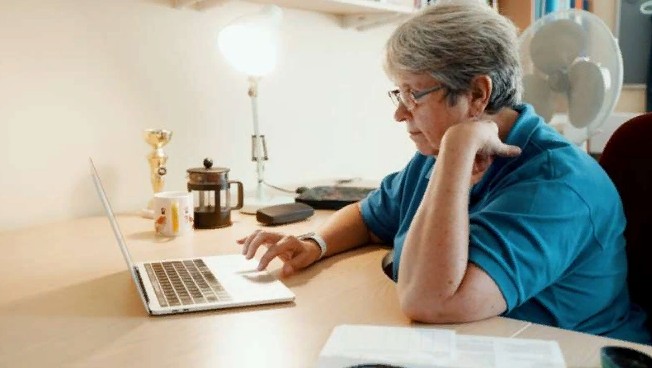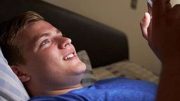The ‘first of its type’ website walks health care providers through a remote assessment for people with physical disabilities.
During the pandemic, appointments for those with physical limitations were swiftly moved online, with little consistency or direction on what could be done remotely and what needed to be done in person.
The University of Plymouth has now established a free online learning resource to improve the knowledge and skills of practitioners who provide video conferences or phone visits for people with physical disabilities.
The Telerehab toolkit, which was funded by the National Institute for Health Research (NIHR) and the Medical Research Council, provides information to help practitioners deliver effective remote assessments, empowering health and social care professionals and supporting people with conditions like Parkinson’s and multiple sclerosis, as well as those recovering from COVID-19.
The toolkit contains information about what patients can expect from remote appointments, digital skills guidance for patients and practitioners, and tel rehab materials for practitioners to assist them to identify whether assessments can be done remotely and, if so, how to successfully complete appointments.
A significant project team contributed to the content, which was based on literature searches, discussions with over 100 doctors, students, patients, and their families, and a survey of 247 UK health and social care practitioners.
The Centre for Health Technology at the University of Plymouth and the Plymouth Institute of Health and Care Research have also contributed to its development (PIHR).
While the resource was created in response to COVID-19, it is intended to be used now and in the future, as the NHS strives to achieve net-zero and healthcare delivery evolves to provide person-centered care.
It is also envisaged that the project will aid in the efficient management of the growing number and backlog of persons in need of rehabilitation, as well as the sharing of best practices for telerehabilitation in real-world’ settings to inform future practice.
«This toolkit isn’t taking away from the fact that some appointments will still need to be done in person, such as sophisticated physical examinations or imparting painful news,» Jenny Freeman, project lead and Professor of Physiotherapy and Rehabilitation at the University of Plymouth noted.
However, many consultations, such as basic follow-ups on treatment plans or assessments of home-based adaptations, can be done remotely, saving the patient time and stress while also allowing the practitioner to take a more sustainable approach.
«The Telerehab toolbox is the first of its type to focus particularly on mobility impairment evaluation, and our goal is to make sure that all practitioners who work with people with physical disabilities, from physiotherapists to dietitians, are aware of the benefits it provides.» COVID-19 may have sparked its development, but technology can truly benefit patients, so getting remote delivery right today and in the future is critical.»
Barbara Scott, a patient partner on the study who resides in Lewdown, West Devon, has multiple sclerosis and shared her tel rehab experience with physicians in the project. «The biggest benefit of remote examinations is that I can focus my efforts on the exercises offered, rather than worrying about traveling to a hospital and all the time and stress that entails,» she explained.
«I had a video-based physiotherapy appointment with Jenny (Freeman) long before tel rehab was the norm, and she was able to improve my ankle discomfort and weakness by giving me suggestions and exercises over the phone.» I’m thrilled that the Telerehab toolkit is now available to help additional patients benefit from what I’ve learned.»
«Some people have anecdotally shared with us that they don’t want to visit hospitals for in-person appointments for a number of reasons, and would rather a video-based session,» Professor Freeman concluded. Our goal is to make both practitioners and patients feel confident in using tel rehab if the visit can be completed remotely, and the toolkit can help us achieve that goal.»
A number of peer-reviewed publications have already been published as a result of the initiative, showing the need for the resource and emphasizing the relevance of digital skills for both patients and practitioners to provide a positive patient experience.






Be the first to comment on "The ‘first of its type’ website walks health care providers through a remote…"